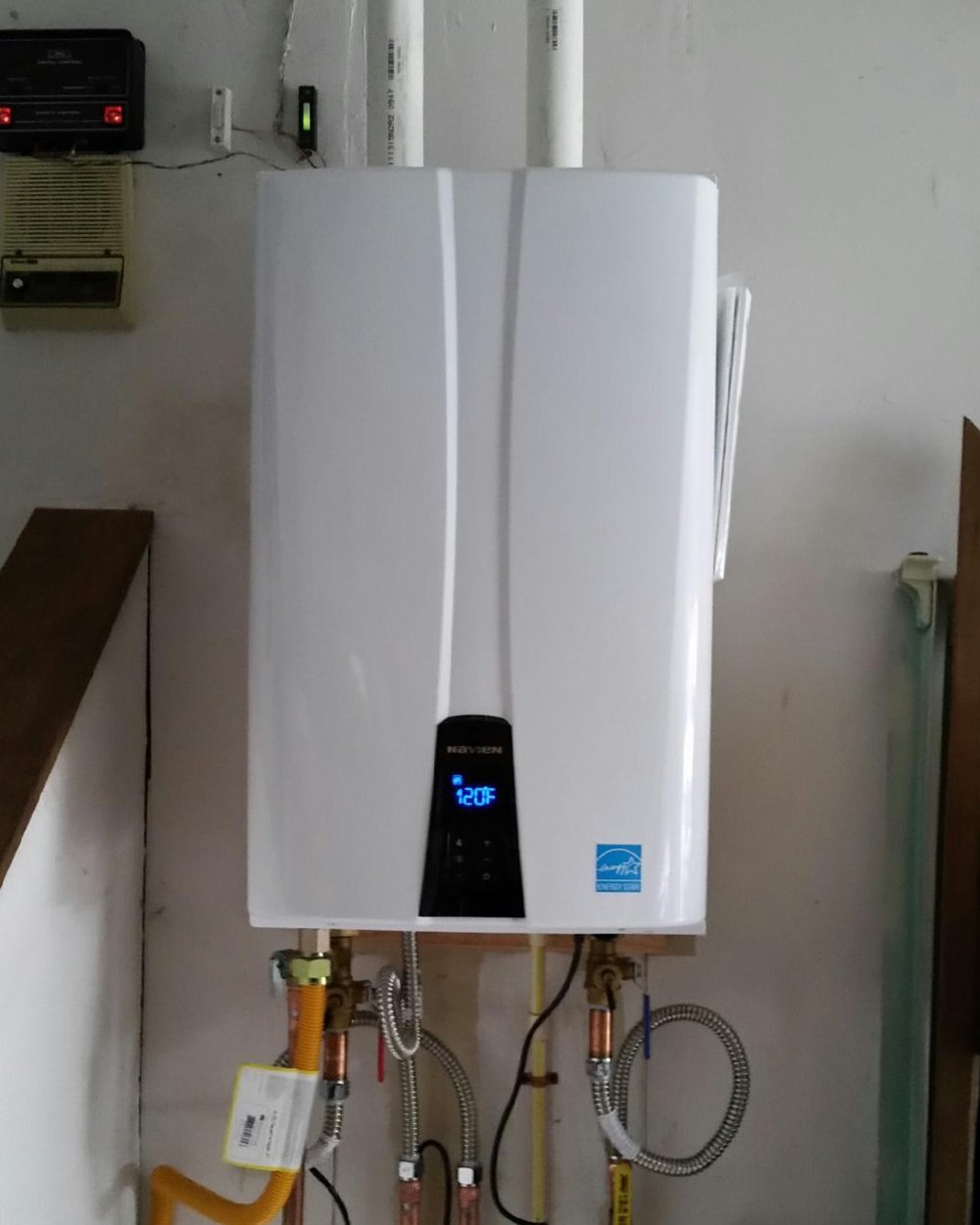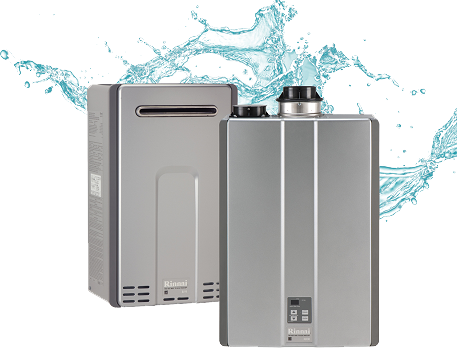Are you currently on the lookout for info around Pros and Cons of Tankless Water Heater?

In a globe where comfort and effectiveness reign supreme, it's no surprise that house owners are frequently in search of smarter methods to handle their home's power consumption and comfort. One development that has gradually obtained popularity is the tankless hot water heater. Yet what exactly makes these systems stick out from the conventional tank-based designs most of us grew up with? Let's dive in and check out the benefits of tankless water heaters, aiding you determine if it's time to make the button in your home.
Introduction
Picture this: you enter the shower after a lengthy day, anticipating a calming cascade of hot water, just to be greeted by icy droplets since the last person used it all up. Sound acquainted? Conventional hot water heater keep a fixed quantity of warm water, meaning you go to the grace of that storage tank's supply. Tankless systems, on the other hand, warmth water on demand. Say goodbye to running out mid-shower, say goodbye to fumbling with routines simply to guarantee hot water is available.
Comprehending Tankless Hot Water Heater
What Are Tankless Water Heaters?
Tankless water heaters, often known as on-demand or immediate hot water heater, offer hot water only as it's required. Rather than storing gallons of pre-heated water, these systems kick into action the minute you turn on the faucet. Water goes through a warm exchanger, warming up in real-time, suggesting you get a continuous flow of hot water without the demand for a large storage tank sitting lazily by.
Exactly how Do They Differ from Conventional Solutions?
Conventional heating units hold a tank of hot water, utilizing power to maintain that container at a regular temperature level. Tankless systems remove the standing supply, reducing squandered power and the bulky footprint of a big cyndrical tube. Essentially, you're updating from a "stockpile" mindset to a "made-to-order" technique.
Usual Types of Tankless Devices
Tankless water heaters typically can be found in two varieties: gas and electric. Gas designs tend to deliver higher flow prices, ideal for larger households, while electric models commonly serve smaller homes and are normally easier to mount. Additionally, some systems are designed for point-of-use (serving one fixture) while others can take care of the whole home's warm water demands.
Key Benefits of Tankless Hot Water Heater
1. Countless Hot Water Supply
Ever before had to arrange showers so everyone obtains their fair share of warm water? With tankless, that comes to be a thing of the past. As long as the heating system's flow capacity isn't gone beyond, you can take back-to-back showers without becoming a popsicle.
2. Energy Performance and Price Financial Savings
No more heating up a giant container's worth of water and maintaining it toasty all day. Tankless heating systems lower standby power losses, which can lower utility costs. While the first price could be greater, the long-lasting financial savings frequently justify the financial investment.
3. Space-Saving Layout
If your home is short on storage, getting rid of the cumbersome tank frees up useful space. Tankless devices are compact and can often be mounted on wall surfaces, concealed in corners, or set up in tight utility closets without grabbing all of the entire area.
4. Longer Life expectancy
A well-maintained tankless hot water heater can outlast its tank-based relative. Standard tanks may last 10-15 years, while tankless versions can keep chugging along for two decades or even more, making them a solid investment gradually.
5. Improved Water Top Quality
Saving water in a container can in some cases lead to sediment buildup or a somewhat "off" preference. With tankless systems, fresh water is heated on the spot, lowering the chances of sediment accumulation and possibly offering cleaner-tasting water.
Factors to consider Prior To Changing
Though the advantages are compelling, it's important to take into consideration a few factors before completely dedicating.
First Financial Investment Costs
Tankless heating systems generally feature a greater in advance cost. In between the unit itself and possible setup modifications, the preliminary cost may provide you sticker label shock. However bear in mind to view it as a lasting financial investment.
Installation Needs
Relying on your home's infrastructure, you could require extra electric capacity or gas line upgrades. Ensure you comprehend the installment requirements and speak with an expert to prevent shocks.
Reviewing Your Home's Water Use Patterns
If your household all at once makes use of numerous components with high warm water need, make sure the device's circulation price satisfies your requirements. Understanding your use patterns helps you choose the ideal size and type of tankless heating unit.
Maintenance and Treatment Tips
Tankless systems are fairly low maintenance, yet they aren't set-it-and-forget-it home appliances.
Regular Cleaning and Descaling
Tough water minerals can develop in the warmth exchanger, influencing performance. Normal descaling (commonly suggested annually) keeps the device performing at peak performance.
Yearly Professional Examinations
A yearly checkup from a professional makes sure small issues are caught early. They'll assess the device's efficiency, search for leaks, and assist keep optimal efficiency.
Guaranteeing Appropriate Air Flow
For gas designs, correct air flow is vital to securely eliminate exhaust gases. Make sure airing vent systems are tidy and correctly installed to avoid any kind of potential safety and security threats.
Comparing Different Brands and Designs
Not all tankless hot water heater are produced equivalent.
Researching Dependable Producers
Seek credible brand names with a background of creating top quality units. A dependable producer commonly gives far better client support and longer guarantees.
Reviewing Evaluations and Customer Comments
User testimonials and feedback from neighbors or friends who have actually gone tankless can supply valuable insights. Occasionally, real-life experiences can be much more informing than marketing pamphlets.
Installation: DIY or Specialist?
While some home owners relish dealing with jobs themselves, tankless installment may not be the very best time to burst out the toolbox.
Pros and Cons of DIY Installment
A DIY set up can conserve money, but it comes with risks. Inaccurate setup can bring about inadequacy or safety and security worries. If you're handy and have experience, it might be feasible-- but wage care.
When to Call a Specialist Plumbing
For a lot of, calling a professional guarantees whatever's done properly. An expert plumber recognizes local codes, sizing needs, and venting specifications, reducing the danger of problems.
Making the most of Performance
You've invested in a tankless device-- now maximize its effectiveness.
Optimal Temperature Level Setups
Most people set their systems in between 120-140 F. Adjusting the temperature can improve convenience and financial savings. Experiment to locate a wonderful area that doesn't squander energy.
Pairing with Low-Flow Fixtures
Want to extend your system's capabilities? Consider setting up low-flow showerheads and faucets. They lower water use, enabling your tankless system to deliver a constant stream of warm water without straining.
Ecological Impact
Tankless hot water heater line up with greener living objectives.
Minimized Carbon Impact
By using less energy and just heating water as needed, tankless systems can lower your home's carbon impact, minimizing your ecological influence.
Conserving Natural Resources
Much less energy consumption and much less lost warm water equate right into fewer natural resources being made use of, an ecological win-win.
That Benefits Most from Tankless Heating units?
The elegance of tankless heating systems is that they can suit a variety of homes.
Big Households vs. Single Residents
Large families might enjoy the unlimited hot water supply, while solitary occupants appreciate the energy savings from not warming a whole storage tank for just one person's early morning shower.
Property Owners with Restricted Area
If your home is short on square video footage, losing the large tank liberates room for other fundamentals-- or perhaps just much more breathing space.
Eco-Conscious Consumers
Going tankless aligns with eco-friendly values, guaranteeing you're not squandering energy or sources.
Future Patterns in Tankless Water Heaters
The globe of home appliances is ever-evolving, and tankless hot water heater are no exception.
Smart Home Assimilation
Picture readjusting your hot water heater's temperature through an application or getting maintenance signals on your phone. As clever home technology advancements, we'll see more connectivity and ease.
Advancements in Technology
R&D is continuously improving heat exchangers, making units a lot more effective and long lasting. Future designs could be even quieter, extra portable, and better suited for differing environments.
Verdict
Selecting a tankless hot water heater is greater than simply updating your home's hot water system; it's purchasing lasting comfort, power performance, and a greener lifestyle. By considering your house's water use, being mindful of setup requirements, and dedicating to regular maintenance, you can appreciate a stable stream of warm water without the baggage of a large container. As technology progresses, you can look forward to even smarter, a lot more reliable tankless solutions that not just make your life less complicated but also benefit the world.
5 Benefits of Tankless Water Heaters
Save Valuable Space
Since tankless water heaters do not have a massive 40+ gallon tank of water, they are considerably smaller and can fit in more narrow spaces in your home.
If you are working with limited square footage, a tankless water heater will still provide you with the hot water you need while taking up significantly less space in your home. While the exact size of a tankless water heater varies depending on the brand, some are as small as a carry-on suitcase.
Endless Supply of Hot Water
While a traditional water heater preheats and stores your water in the tank, tankless water heaters do not rely on a reservoir system.
This means that they do not run out of hot water like traditional water heaters since they make hot water as needed. Traditional water heaters need to stop and reheat water when the tank inevitably runs out, but tankless water heaters do not have this issue.
Provide Warm Water On-Demand
As mentioned above, tankless water heaters do not preheat a certain amount of water and then store it in a massive tank to be used later. An advantage of installing a tankless water heater includes water being heated instantly whenever you turn on the faucet.
When you turn on the water, it will travel through a heat exchanger in the unit and be heated with either an electric element or a natural gas burner. Gone are the days of having to ration out your hot water to make sure that you do not run out.
Longer Life Cycle
Not only do tankless water heaters provide an endless supply of hot water for your home whenever you want it, but these units tend to have a longer lifespan than water heaters with tanks.
Tanked water heaters have an average lifespan of around 10 years, as the tank is prone to corrosion, leading to serious issues. In comparison, tankless water heaters can last for around 15 to 20 years with the proper maintenance and tune-ups.
Energy Efficient
Compared to traditional water heaters, tankless water heaters are a more energy-efficient water heating option for your home. Tank water heaters must heat and reheat the water stored in the tank throughout the day, even if you are not home.
This energy use adds up over time, leading to an increase in your energy bills and added strain on your unit. A benefit of buying a tankless water heater includes saving money since it only operates when you turn on the hot water. Since it only heats up as needed, this can decrease your energy bills and save you money in the long run.
https://callrandazzo.com/blog/5-benefits-of-tankless-water-heaters/

As a keen reader on Why You Should Consider a Tankless Water Heater, I figured sharing that excerpt was a good thing. Sharing is caring. Helping others is fun. Thanks a lot for taking the time to read it.
This Post